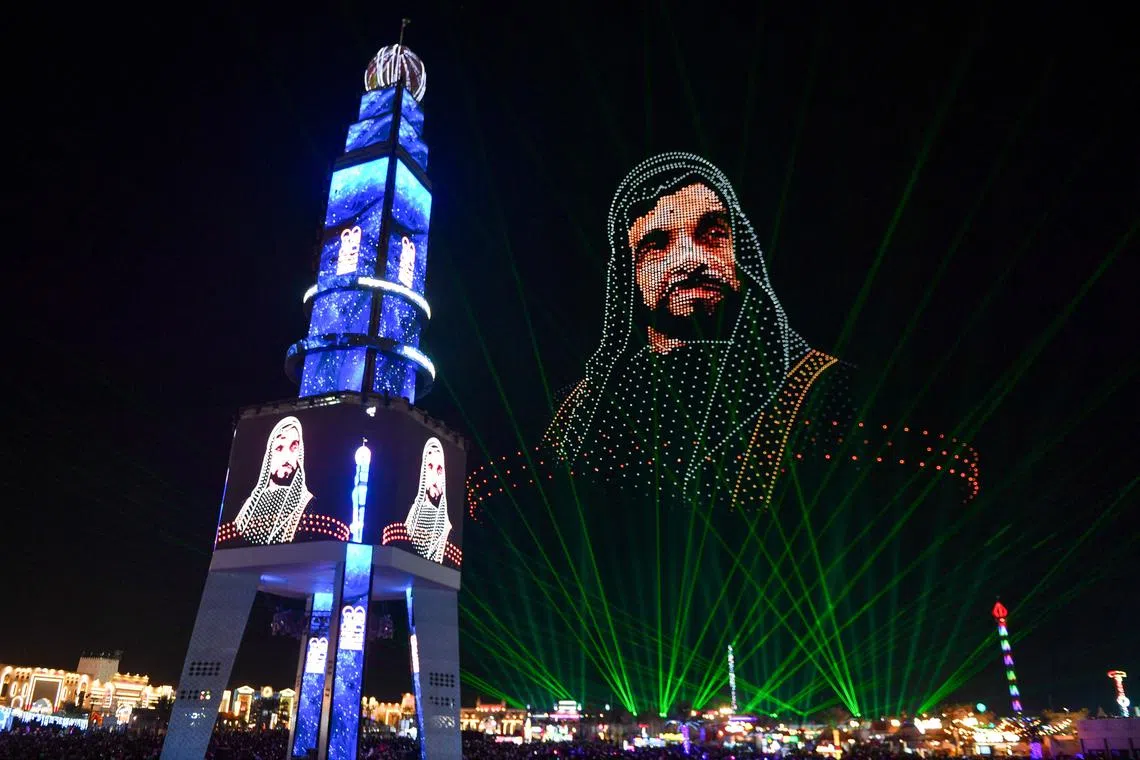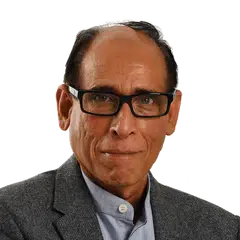For subscribers
From oil to knowledge industries: Abu Dhabi’s Falcon Economy takes off
Big bets in technology and AI are transforming the Middle East’s richest economy.
Sign up now: Get ST's newsletters delivered to your inbox

An image depicting Sheikh Zayed bin Sultan Al Nahyan, the founder and first president of the UAE, created with drones at a New Year’s Eve show in Abu Dhabi on Jan 1.
PHOTO: AFP
Follow topic:
After Dubai’s economy hit the skids during the global financial crisis of 2008, its neighbouring emirate Abu Dhabi rescued it by extending a US$10 billion lifeline. Then, in 2010, the world’s tallest building, located in Dubai and originally named Burj Dubai, was renamed Burj Khalifa in honour of the then ruler of Abu Dhabi, Sheikh Khalifa Bin Zayed Al Nahyan. That sent a not-so-subtle message: the real power in the United Arab Emirates (UAE) resides in Abu Dhabi, not Dubai.
The capital, and by far the biggest and richest of the seven emirates that make up the UAE, Abu Dhabi occupies more than three-quarters of the UAE’s land area, accounts for 90 per cent of its oil production and some 60 per cent of its GDP. It also has the highest per capita income at around US$85,000 (S$113,000). Its sovereign wealth funds control assets north of US$1.7 trillion – more than those of Norway, China, Singapore and Saudi Arabia – which makes it the world’s richest city as measured by financial assets.


